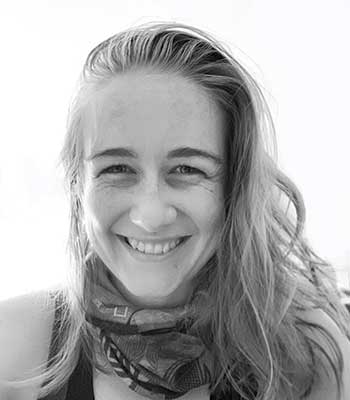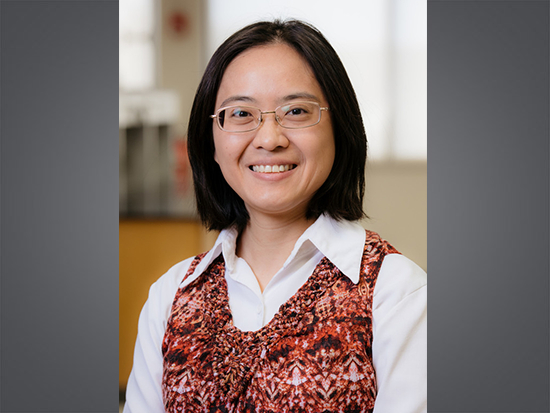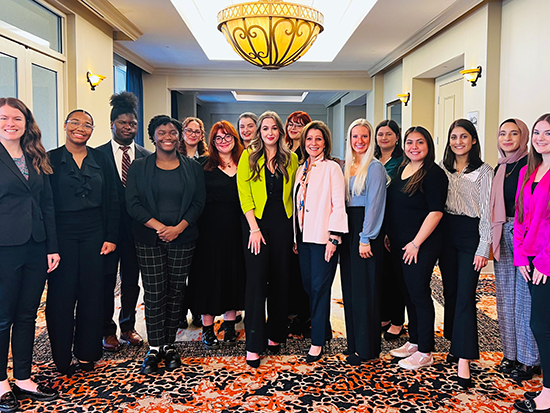COVID-19 has changed not only our daily lives but also how we approach education. In these uncertain times, professors are learning and creating new policies, procedures, and delivery modes at a breakneck speed to make sure students stay on track and engaged. UAB English Instructor Halley Cotton has faced these challenges following a simple but meaningful maxim: “You give grace; you get grace.”
 Halley CottonHalley Cotton wasn’t always an English major. In fact, her passion for biology, science, and animals first took her to Jefferson State where she earned an associate’s degree in biology. A run-in with calculus, though, made her reassess her goals and career path.
Halley CottonHalley Cotton wasn’t always an English major. In fact, her passion for biology, science, and animals first took her to Jefferson State where she earned an associate’s degree in biology. A run-in with calculus, though, made her reassess her goals and career path.
“I knew I wanted to be an advocate, but I realized that I didn’t have to be out in the field collecting data to do so,” said Cotton. “I could be an advocate by being a writer and an educator. I ultimately chose UAB because it was close. I had no idea how wonderful their English department truly was and how kind, caring, and dedicated their professors are.”
Cotton first graduated from UAB in 2013 with a B.A. in English, concentrating in creative writing, then followed it up with an M.A. in 2016, completing a thesis in poetry. Once she taught her first course in fall of 2015, she never stopped. She currently teaches first-year composition writing courses in rhetoric and argument as well as 200-level literature courses, which cover topics ranging from literary forms to monsters to otherness. In a given semester, Cotton is responsible from 50 to 90 students.
Starting in Fall 2020, though, Cotton was forced to pivot not only her teaching style but also what she knew about classroom dynamics when she took on one remote class and two hybrid classes due to COVID. Her pedagogy relies mostly on creating a community within the classroom, which has been made more difficult now that one-third of her students are in-person and the rest are in a digital space. She’s combatted the distance by encouraging her students to get to know and learn from each other in weekly mini-sessions in breakout rooms.
Cotton also chooses compassion and transparency when it comes to her students, establishing both trust and expectations ahead of time. She tries to keep her focus on the ultimate goal: getting her students through the semester successfully. To do so, Cotton adapts and juggles deadlines when need be:
“I remember what it was like to be a student juggling three jobs and taking classes full-time. It was a lot. Now, throw a global pandemic into the mix, and that really takes things over the edge. Students have a lot going on in their lives at the moment—professors, too. Now isn’t the time to be rigid and unforgiving. What’s meaningful to me is to be able to respond to students going through these difficult times with empathy. Is it really going to affect me if a student needs an extra week on a paper? Not really. But to them it makes all the difference. When I look back on my life it’s not going to matter to me if I had to grade a paper a week late. What will matter is how I responded to the students entrusted to my care.”
Admitting that knowing students and who they are is what ultimately motivates her, Cotton has faced her own struggles this semester in connecting with students and figuring out the best ways to teach in the new settings.
“I’ve had to be very intentional about my time,” said Cotton. “I'm learning right alongside my students, and I tell them that. Our UAB students really are so wonderful. I've remained open and transparent about my own challenges. We're all just trying to do our best and take things one day at a time. We’re all human. You give grace; you get grace.”
That same balance comes in to play for the mental health of her students as well as herself. Cotton checks in weekly with current and past students, providing both encouragement and a safe place for them to unload their worries. She also makes sure to disconnect from the screen and takes time for herself by exploring Alabama’s woods and trails.
Though the current crisis remains ongoing, Cotton hopes that we will take away some lessons.
“I hope that we’ve learned forgiveness when it comes to attendance,” said Cotton. “I also think this may encourage us to establish policies where we record lectures for students that can’t be there. Overall, we’ve been faced with a challenge that asks us to make college more accessible for all, and I think that level of accessibility will be better for students in the long run.”
Halley Cotton completed both her B.A. and M.A. in English at the University of Alabama at Birmingham. She is the assistant editor of the Birmingham Poetry Review, poetry editor for NELLE, and the founding director of the SPARK Writing Festival. Her work has appeared in places such as The Greensboro Review, Poetry South, and Smokelong Quarterly, among others.


